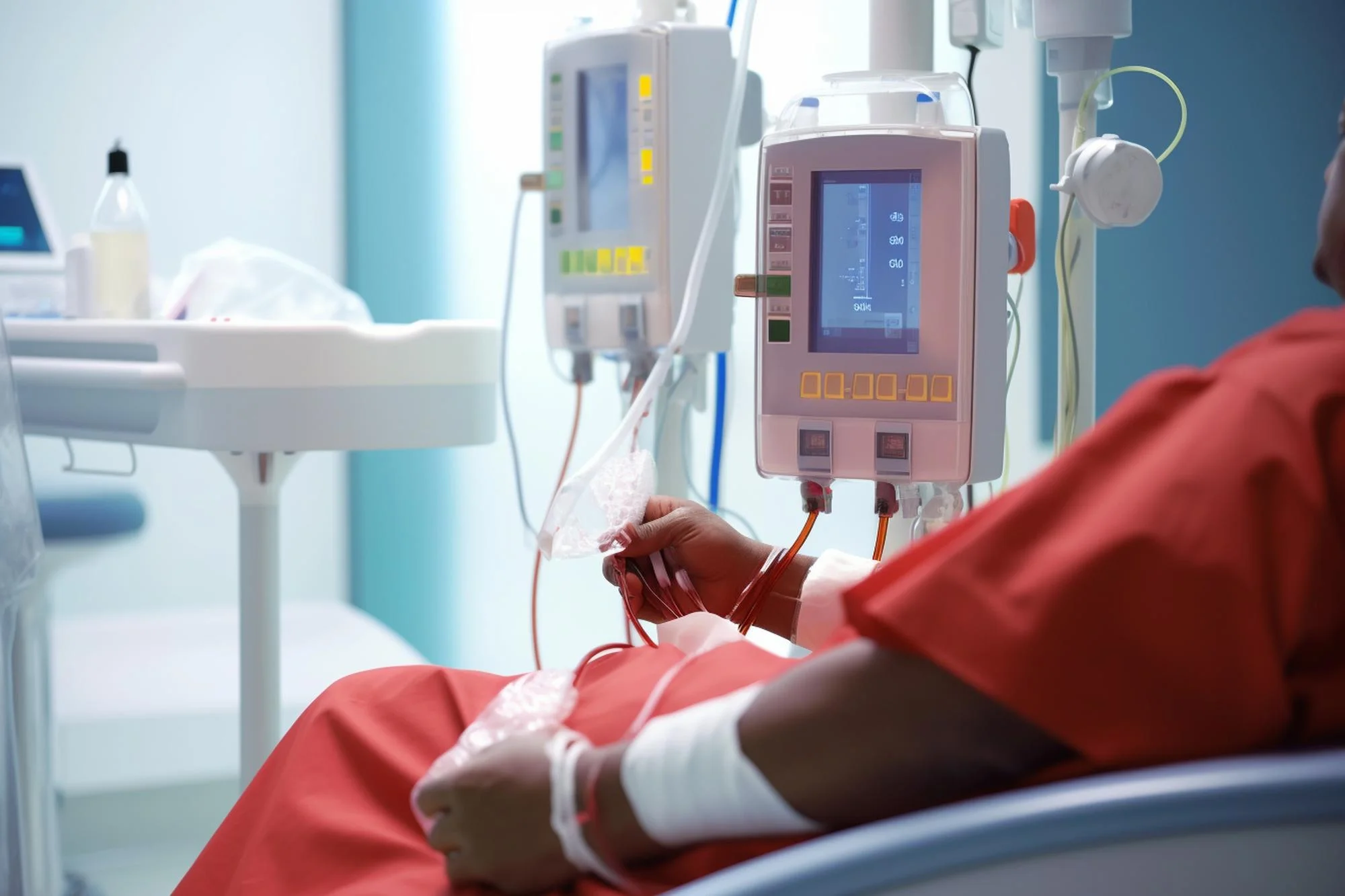A groundbreaking study recently published in Clinical Nutrition ESPEN suggests that curcumin, a compound found in turmeric, may offer therapeutic benefits to patients undergoing peritoneal dialysis (PD) by attenuating oxidative stress and potentially reducing uremic toxins. This revelation brings hope to individuals suffering from chronic kidney disease (CKD) who rely on PD, a life-sustaining but challenging treatment.
The longitudinal, randomized, single-blind, placebo-controlled trial by Reis et al. (2024) assessed the effects of curcuminoid supplementation on oxidative stress, inflammation, and uremic toxins, substances that can occur in the blood when the kidneys are not functioning properly. Peritoneal dialysis patients often battle with these issues, which can exacerbate their condition and diminish their quality of life.
The Vicious Cycle of CKD, Inflammation, and Oxidative Stress
CKD patients often experience a harmful interplay between inflammation, oxidative stress, and uremia, making disease management particularly complex. The inflammation that is typically part of CKD can lead to increased oxidative stress, causing damage to the cells. Similarly, the accumulated uremic toxins due to impaired kidney function can contribute to both inflammation and oxidative stress. This cycle can lead to further health deterioration unless effectively managed.
Curcumin: A Potential Ally in Dialysis Management
Curcumin, which is derived from turmeric, has shown potential as a powerful modulator in various diseases due to its anti-inflammatory and antioxidant properties. The study conducted by Reis and colleagues targeted these capabilities to test their benefits specifically for PD patients.
Methodology and Outcomes of the Study
The research included 48 patients who were divided into two groups. One group received three capsules of 500 mg Curcuma longa extract containing 98.42% total curcuminoids, and the second group received a placebo containing three capsules of 500 mg starch. Over a 12-week period, the team measured indicators of oxidative stress and inflammation in the participants’ peripheral blood mononuclear cells (PBMCs). These included levels of malondialdehyde (MDA), total Thiol (T-SH), tumor necrosis factor-alpha (TNF-α), interleukin-6 (IL-6), and p-cresyl sulfate (p-CS), a known uremic toxin.
The results were intriguing. After 12 weeks of curcumin supplementation, the MDA levels—a marker of oxidative stress—were significantly reduced in the curcumin group, while no change was seen in the placebo group. On the other hand, markers such as mRNA expression of Nrf2, HO-1, NF-κB, cytokines plasma levels, and p-CS did not show significant changes. However, p-CS levels exhibited a downward trend in the curcumin group, suggesting that with a larger sample size or longer treatment duration, there might be a more significant impact.
What this study indicates is that curcuminoid supplementation could play a role in mitigating some of the systemic challenges faced by dialysis patients and could potentially be incorporated into CKD management strategies to improve outcomes.
Implications for Public Health and Patient Care
The findings of Reis et al. provide evidence of the potential benefits of curcuminoid supplementation. Should further research corroborate these results, it might lead to changes in nutritional guidelines and disease management practices for CKD patients. The use of nutritional supplementation to address the harmful side effects of PD can improve patient well-being and decrease healthcare costs by potentially reducing comorbidities associated with oxidative stress and inflammation.
As with all studies, some limitations must be acknowledged. The small sample size and single-center nature of the study may limit the generalizability of the findings. Additionally, the duration of the study may not have been long enough to observe significant changes in all measured parameters.
Future Outlook for Curcumin Supplementation
This study’s authors encourage further research on the topic. Long-term studies with larger cohorts are necessary to validate the benefits of curcumin supplementation and to explore the appropriate dosages and administration methods for optimal efficacy.
The research community’s interest in natural compounds like curcumin as therapeutic agents continues to grow, particularly as patients and healthcare providers seek alternative and complementary therapies. Not only could these supplements reduce the burden of pharmacological treatments, but they also offer a more holistic approach to disease management.
Conclusion
The study by Reis et al. represents an important step forward in understanding the potential role of curcumin in managing the complex conditions associated with CKD, particularly for patients enduring peritoneal dialysis. With its potential to alleviate oxidative stress and reduce uremic toxins, curcumin supplementation could be a valuable tool in the nutritional management of dialysis patients. As the evidence base grows, curcumin may soon become a standard recommendation for individuals seeking to manage the impacts of PD more effectively.
To access the full study, reference: Reis, D. C. M. V., Alvarenga, L., Cardozo, L. F. M. F., Baptista, B. G., Fanton, S., Paiva, B. R., … Mafra, D. (2024). Can curcumin supplementation break the vicious cycle of inflammation, oxidative stress, and uremia in patients undergoing peritoneal dialysis? Clinical Nutrition ESPEN, 59, 96-106. https://doi.org/10.1016/j.clnesp.2023.11.015
Keywords
1. Curcumin supplementation
2. Peritoneal dialysis management
3. Oxidative stress in CKD
4. Anti-inflammatory treatments
5. Uremic toxins and dialysis
References
1. Reis, D. C. M. V., Alvarenga, L., Cardozo, L. F. M. F., Baptista, B. G., Fanton, S., … Mafra, D. (2024). Clin Nutr ESPEN. DOI: 10.1016/j.clnesp.2023.11.015
2. Hutchison, A. J., Smith, C. P., Brenchley, P. E. C. (2008). Pharmacology & Therapeutics, 119(3), 297-306. DOI: 10.1016/j.pharmthera.2008.06.004
3. Saldanha, J. F., Leal, V. d. O., Stenvinkel, P., Carrero, J. J., & Mafra, D. (2013). The Nephrology Dialysis Transplantation, 28(7), 1621-1625.
4. Yang, B., Xie, Y., Guo, M., Rosner, M. H., Yang, H., & Ronco, C. (2018). American Journal of Kidney Diseases, 72(2), 258-268.
5. Jha, V., Garcia-Garcia, G., Iseki, K., Li, Z., Naicker, S., Plattner, B., … Yang, C.-W. (2013). Kidney International, 83(5), 901-908.
Copyright © 2023 European Society for Clinical Nutrition and Metabolism. Published by Elsevier Ltd. All rights reserved.
